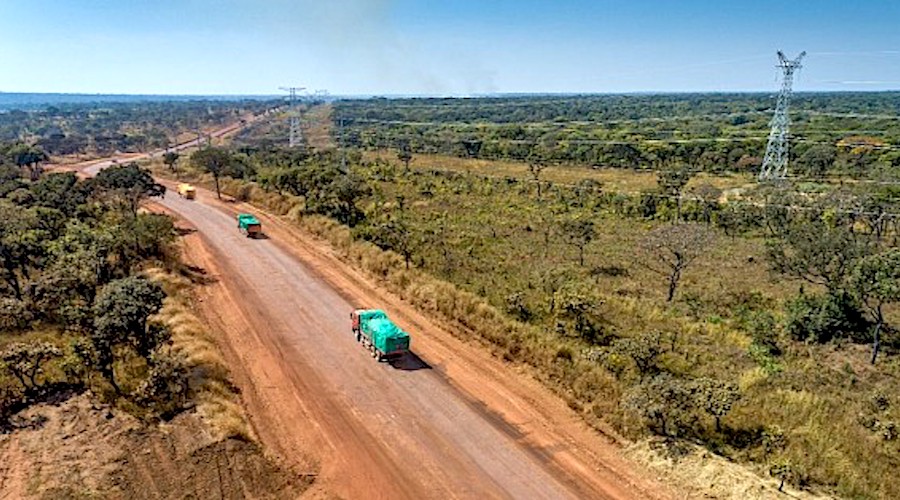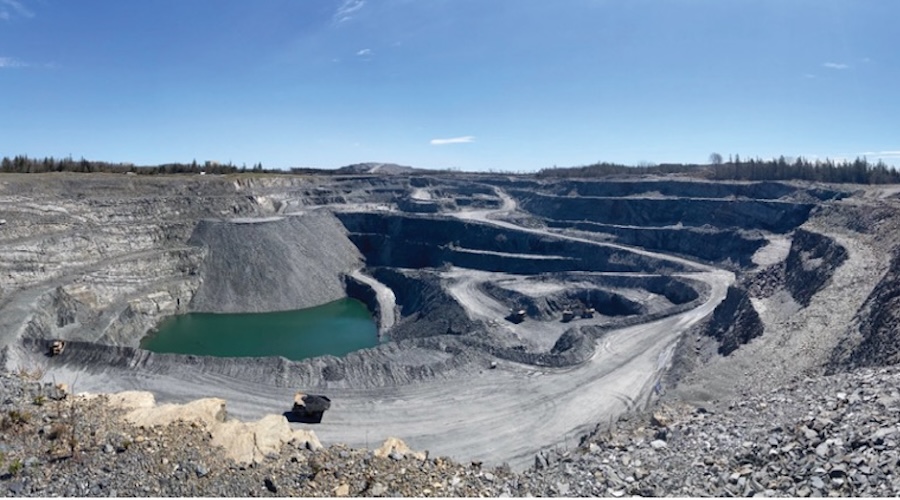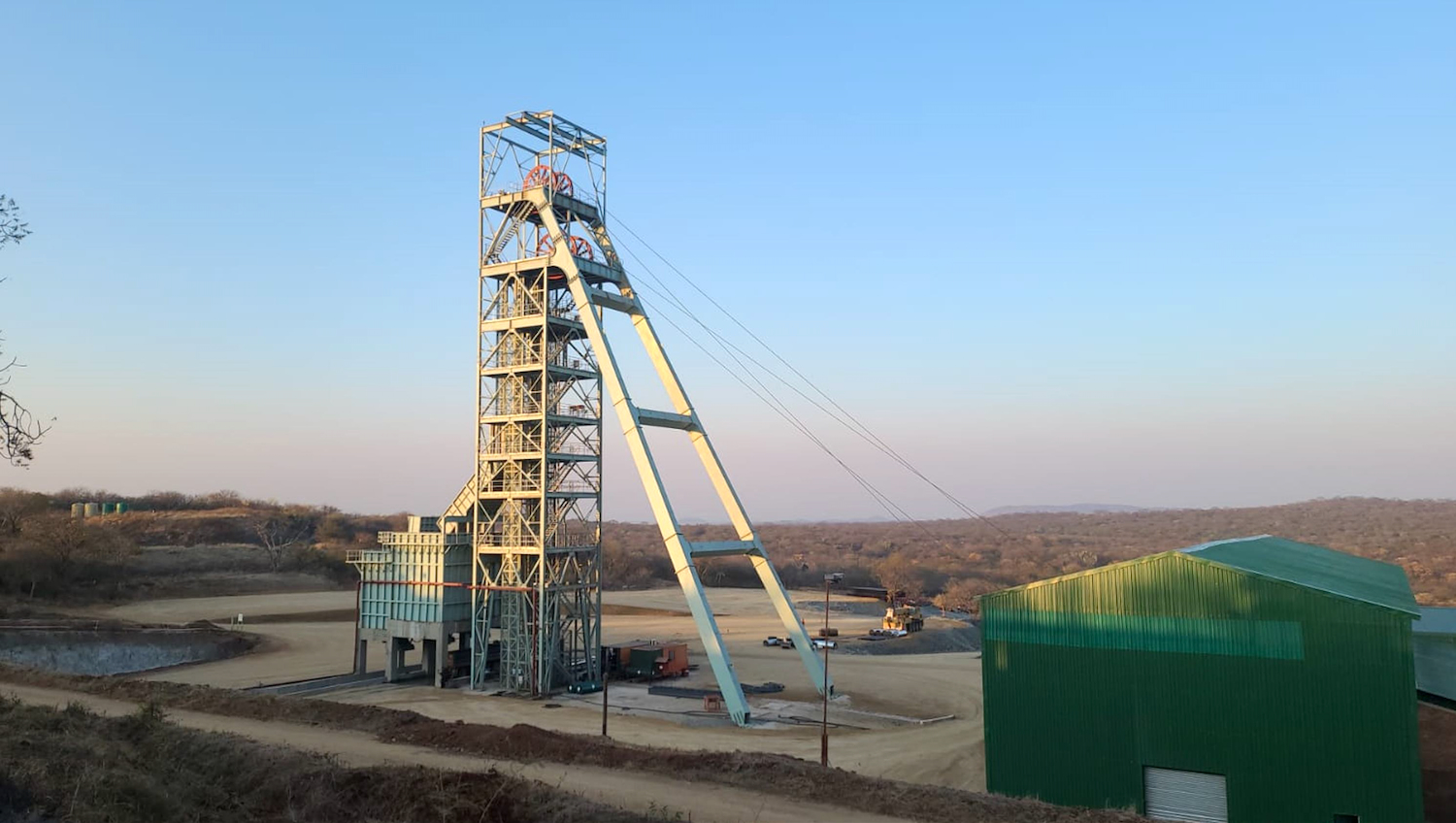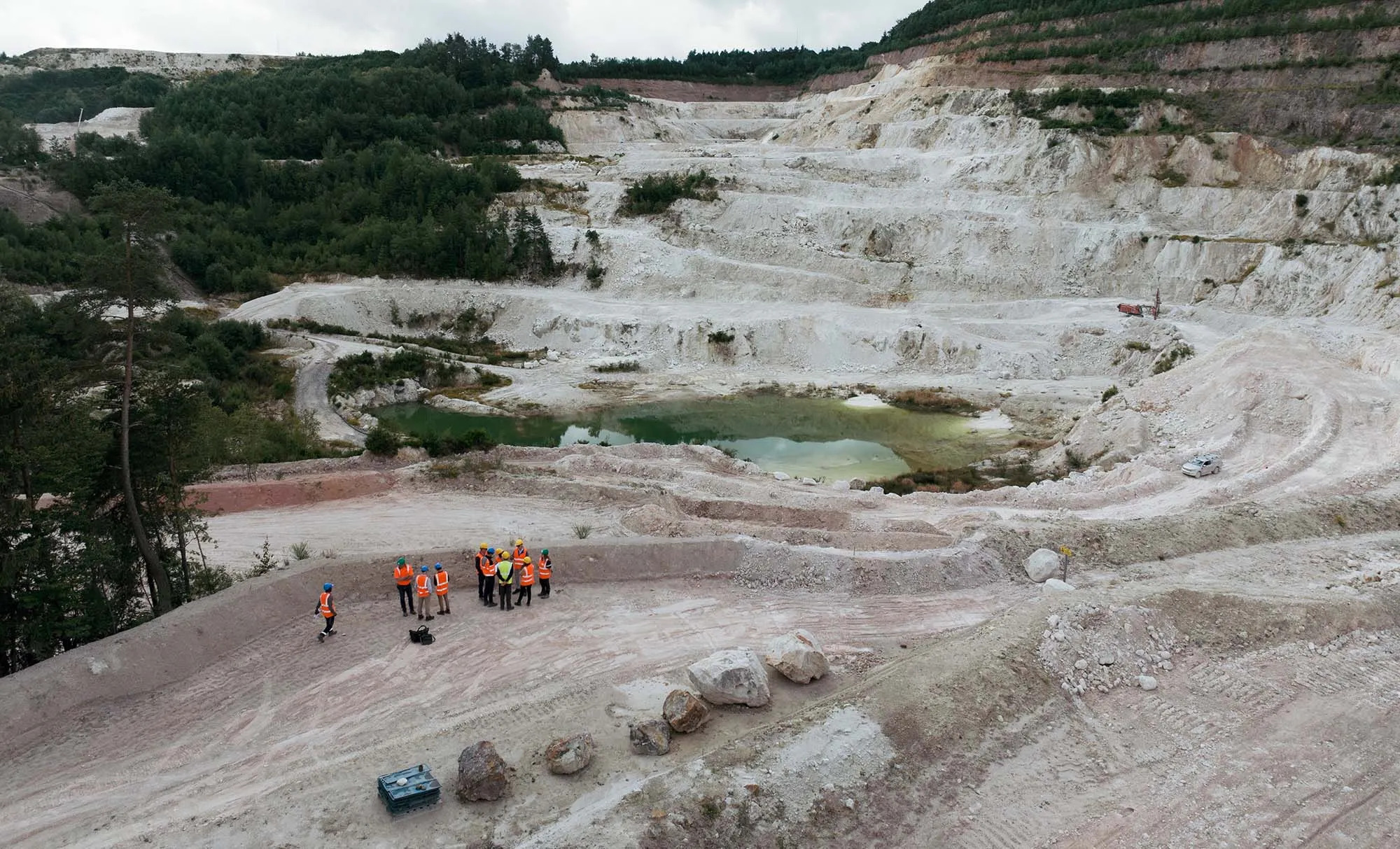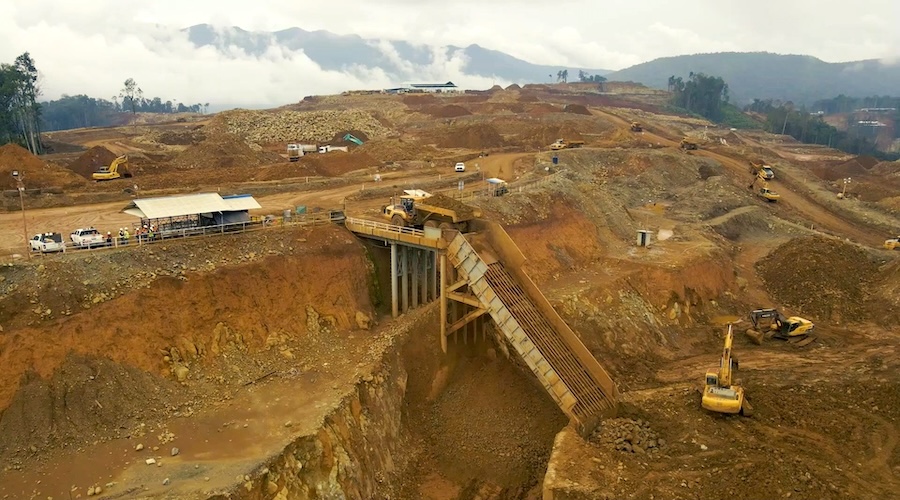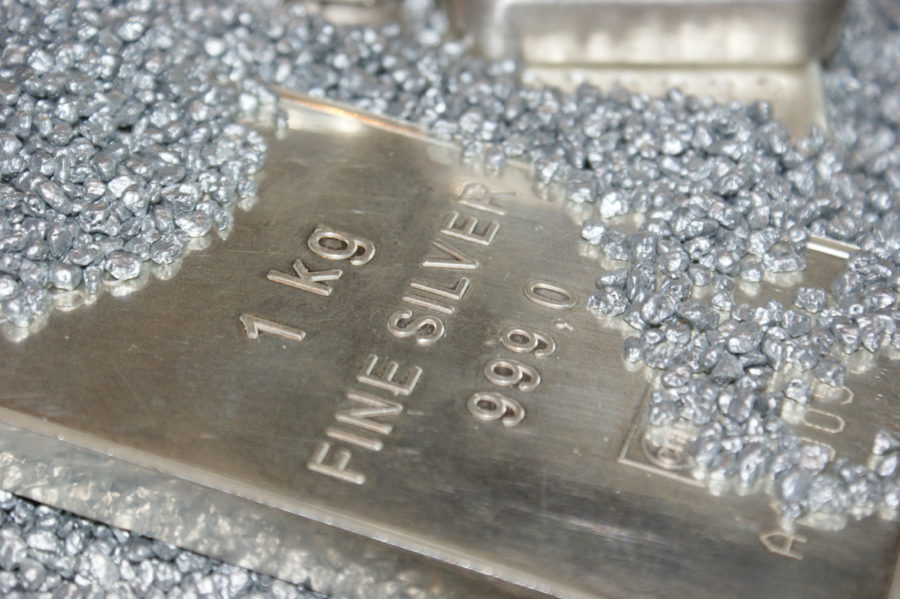South Grass Valley Drilling Update
RENO, Nev., July 07, 2021 (GLOBE NEWSWIRE) -- Nevada Exploration Inc. (“NGE” or the “Company”) (TSX-V:NGE; OTCQB:NVDEF) is pleased to provide an update from its 2021 core drilling program at its South Grass Valley Carlin-type gold project.
Summary:
- During May, the Company completed the first hole of the program, SGVC012, to a final depth of 1,405 metres, successfully sampling the lower-plate Clm unit that hosts NGE’s primary East Golden Gorge target.
- The targeted Clm unit in the bottom part of the hole contained some of the most intense Carlin-type alteration seen to date at the project (in many places being reduced to a sulphidic paste), which based on XRF analysis includes a 96-metre-thick interval containing highly anomalous Carlin-type pathfinders.
- The upper part of the hole encountered Carlin-type alteration and pathfinders indicative of a secondary zone of potentially mineralizing Carlin-type hydrothermal fluid flow through the Roberts Mountains and Hanson Creek Formations.
- The structural and geologic data collected from the hole continue to support significant district-scale structural complexity along the Water Canyon corridor.
- During June, NGE completed sampling the SGVC012 drill core, and submitted samples from the entire hole for lab analysis.
- For the second hole of the program, SGVC013, NGE moved the drill rig 3,500 metres to the south, to the eastern end of the Company’s southern fence of drill holes.
- SGVC013 is presently at a depth of 447 metres, and approaching the alluvium-bedrock contact – drilling is currently on hold pending availability of drilling personnel, and is expected to continue shortly.
- Since completing its June 2021 financing, NGE has begun negotiations to add a second deep-capacity core rig to the program and has strengthened its Nevada-based logging team with the addition of a new exploration geologist.
- The Company plans to extend the expiry date of a total of 5,192,322 share purchase warrants exercisable at $0.45 and $0.50 per share that currently expire on July 13, 2021, and October 9, 2021, by an additional 12 months.
A photo accompanying this announcement is available at https://www.globenewswire.com/NewsRoom/AttachmentNg/541d6ab9-ce05-4019-bd8d-9454cbd70c31
Discussing the ongoing program, NGE CEO, Wade Hodges: “It’s been an exciting couple months logging what is now the deepest hole on the project, and this first hole of 2021 has already significantly de-risked our target concept at East Golden Gorge. All of our work to date had pointed to the Clm unit effectively providing the dominant fluid superhighway for the mineralizing Carlin-type fluids to move laterally through the district, and quite simply, our goal with this current drilling program is to test whether our eastward down-dip projection of this superhighway is correct, and whether it supported the type and volume of hydrothermal fluid flow necessary to support a globally significant new gold deposit.
“Drilling more than 1,000 metres to get down to our target in this part of the project took fortitude, especially through the middle part of the hole which had seen very little in the way of any hydrothermal fluid flow, but as predicted by our geologic model, once we approached our target zone, the rocks began to change. From 1,150 metres onwards, the Clm unit contained some of the most intense Carlin-type alteration seen to date at the project, in many places reduced largely to a sulphidic paste, and based on our XRF analysis we can confirm that this massive zone of alteration contains characteristically high concentrations of Carlin-type pathfinders. Given the irregular geometries of Carlin-type gold deposits we’re not betting on any single hole of this program, but with SGVC012 we most certainly hit our targeted superhighway, which represents a major step in validating our East Golden Gorge target concept.
“There is still more to learn from SGVC012 and we’re continuing to collect additional structural data; and while we integrate this data at the north end of the project, for our next hole, SGVC013, we’ve moved the rig to the south end to complete a similarly deep hole to test our targeted Clm unit where this favourable geologic setting and the Water Canyon structural corridor are squeezed along the margin of the Grass Valley Stock.
“In terms of our overall progress with the program so far, we are pleased to have been able to complete our first hole to its target depth through some typically challenging and deep Carlin-type drilling conditions, though securing the continuity of experienced personnel has presented some challenges on this second hole. The rig is currently on a break while our contractor assembles additional personnel. We had been running three crews, such that the rig was drilling continuously, but once drilling resumes we expect we may need to switch to a schedule that includes days off, which is the schedule many of the rigs in the state are employing. To help ensure we maintain momentum at this important stage of the project we’ve begun the process of contracting a second drill rig, as well as strengthened our Nevada-based logging team with the addition of a new exploration geologist.”
With respect to the new information provided by SGVC012, NGE reports:
- From 591 to 734 metres, the silty limestones of the Roberts Mountains Formation and the calcareous siltstones of the underlying Hanson Creek Formation contain a thick interval (143 metres) of pervasive oxidation, de-calcification and argillic alteration, which based on XRF analysis contains highly anomalous concentrations of Carlin-type pathfinders. Together with the results of earlier drilling, this new information from SGVC012 provides additional evidence that these upper units in this area of the project, proximal to the Water Canyon structural corridor, supported significant volumes of hydrothermal fluid flow, which represents a secondary zone of potentially-mineralizing Carlin-type fluid flow, separate from that seen in the Clm unit at depth.
- Whereas the Roberts Mountains and Hanson Creek Formations at the top of the hole are generally characterized by bedding that is distinct, plane laminar, and oriented normal to the core axis (dipping ~20-degrees to the ESE), the Antelope Valley, Ninemile and Goodwin Formations in the middle part of the hole consist of bedding that is rotated parallel to the core axis (dipping ~70 to 80-degrees to the WSW), which represents a drastic change in bedding angles indicative of a complex structural arrangement of large stratigraphic blocks. Once into the Clm unit below, the bedding abruptly flattens and returns to dipping ~20-degrees to the ESE, roughly paralleling the units in the Roberts Mountains and Hanson Creek Formations above. Collecting and interpreting structural measurements in the middle units oriented parallel to the core axis requires great care and attention, and the structural interpretation of SGVC012 is ongoing; however, preliminary observations, combined with the data from NGE’s earlier drilling to the west, are consistent with a large-scale chevron-shaped fold oriented along the NNW-trending Water Canyon structural corridor that has been cut by a series of high-angle faults. NGE believes that these high-angle faults likely provided the primary vertical control for the hydrothermal fluids that then travelled laterally to source the Carlin-type mineralization the Company is targeting in the Clm unit, as well as the Carlin-type features of interest within the Roberts Mountains above.
- Within the mudstones and debris flows of the targeted Clm unit hosting NGE’s East Golden Gorge target, from 1,150 metres to the bottom of the hole at 1,405 metres, SGVC012 encountered a thick interval of intense de-calcification and brecciation hosting dense silicification with black remobilized carbon veinlets and fine-grained ‘sooty’ pyrite veinlets typical of Carlin-type hydrothermal fluid flow. Importantly, the thickness and intensity of these alteration features is consistent with the massive volumes of hydrothermal fluid flow associated with Nevada’s large Carlin-type gold deposits, and within this unit NGE’s preliminary XRF analyses confirm the presence of highly-anomalous Carlin-type pathfinders at the concentrations known to exist in the bedrock surrounding these large deposits, including a 96-metre interval averaging multi-hundred-ppm arsenic.
A photo accompanying this announcement is available at https://www.globenewswire.com/NewsRoom/AttachmentNg/4e3d8c73-4542-42d5-a072-1bb12e3ea867
For the second hole of the program (SGVC013), NGE moved the drill rig 3,500 metres to the south of SGVC012, to set up at the eastern end of the Company’s southern E-W fence of drill holes. This is an important area of the project, where the favourable lower-plate bedrock units are compressed between the Grass Valley Stock and the Water Canyon structural corridor, a setting that is well-suited to creating the conditions that promote increased Carlin-type hydrothermal fluid flow, as well as an area that is coincident with the highest gold-in-groundwater anomaly in the gravels above the bedrock. Just as at the north end of the project, here at the southern end the intensity of Carlin-type alteration features and highly-anomalous concentrations of Carlin-type pathfinders seen in NGE’s earlier drilling increased markedly towards the east, and NGE’s objective with SGVC013 is to intersect the southern projection of its East Golden Gorge target where the Clm unit dips eastward towards the Water Canyon structural corridor. With a planned depth of 1,450 metres, SGVC013 is expected to collect samples much deeper than the earlier drill holes on this southern fence.
A photo accompanying this announcement is available at https://www.globenewswire.com/NewsRoom/AttachmentNg/affd4f1a-702b-4a8b-8b09-c30d2d62b92a
Drilling began at SGVC013 on May 27. After reaching a depth of 447 metres, and approaching what appears to be the alluvium-bedrock contact, drilling was suspended by NGE’s drilling contractor due to availability of qualified personnel. SGVC013 has been stabilized with PQ-sized core rods and appropriate drilling fluids, and the Company expects to continue the hole once its contractor has re-assembled the necessary personnel to achieve the deeper drilling depths required at South Grass Valley.
Amending Warrant Terms
The Company plans to extend the expiry date of a total of 5,192,322 share purchase warrants, exercisable at $0.45 and $0.50 per share (collectively, the "Warrants"). The Warrants were issued pursuant to two private placements that closed on January 14, 2019, and April 10, 2019, and currently expire on July 13, 2021, and October 9, 2021. The Company plans to extend the expiry dates of the Warrants for one additional year, as follows:
- The 1,316,000 Warrants exercisable at a price of $0.45 and expiring on July 13, 2021, will be extended to July 13, 2022; and
- The 3,876,322 Warrants exercisable at a price of $0.50 and expiring on October 9, 2021, will be extended to October 9, 2022.
All other terms and conditions of the Warrants remain unchanged.
The Warrant extension is subject to acceptance by the TSX Venture Exchange.
About Nevada Exploration Inc.
With mature, exposed search spaces seeing falling discovery rates, NGE believes the future of exploration is under cover. Nevada’s exposed terrains have produced more than 200 million ounces of gold, and experts agree there is likely another 200 million ounces waiting to be discovered in the half of Nevada where the bedrock is hidden beneath post-mineral cover. NGE has spent more than 15 years developing and integrating new hydrogeochemistry (groundwater chemistry) and low-cost drilling technology to build an industry-leading, geochemistry-focused toolkit specifically to explore for new gold deposits under cover, and the Company is now advancing a portfolio of projects totalling more than 170 square kilometres.
NGE’s most advanced project is South Grass Valley, located approximately 50 kilometres south-southwest of the Cortez complex, operated by Nevada Gold Mines (Barrick Gold Corp. and Newmont Corporation joint venture), within the specific region of north-central Nevada that hosts Nevada’s largest Carlin-type gold deposits (“CTGDs”). Since acquiring the project, NGE has completed: an infill borehole groundwater sampling program, detailed air magnetic and gravity geophysics surveys, a soil geochemistry sampling program, an initial diamond core drilling program consisting of 10 stratigraphic orientation holes, and most recently (2020), a follow-up reverse-circulation drilling program consisting of 17 holes to increase the density of its bedrock sampling.
Based on the results of its combined exploration datasets, NGE believes it has discovered a mineral system at South Grass Valley with the architecture and scale to potentially support multiple CTGDs. As the Company continues to advance the project, per NI 43-101, 2.3(2), the Company must remind its stakeholders that the project remains an exploration target for which the potential quantity and grade of any mineral resource is still conceptual in nature, and that it is uncertain if further exploration will result in the target being delineated as a mineral resource.
For more information, the Company’s latest videos are available at:https://www.nevadaexploration.com/investors/media/
For further information, please contact:
Nevada Exploration Inc.Email: [email protected]Telephone: +1 (604) 601 2006Website: www.nevadaexploration.com
Neither the TSX Venture Exchange nor its Regulation Services Provider (as that term is defined in the policies of the TSX Venture Exchange) accepts responsibility for the adequacy or accuracy of this release.
Wade A. Hodges, CEO & Director, Nevada Exploration Inc., is the Qualified Person, as defined in National Instrument 43-101, and has prepared the technical and scientific information contained in this News Release.
Cautionary Statement on Forward-Looking Information:
This news release contains “forward-looking information” and “forward-looking statements” (collectively, “forward-looking information”) within the meaning of applicable securities laws, including, without limitation, expectations, beliefs, plans, and objectives regarding projects, potential transactions, and ventures discussed in this release.
In connection with the forward-looking information contained in this news release, the Company has made numerous assumptions, regarding, among other things, the assumption the Company will continue as a going concern and will continue to be able to access the capital required to advance its projects and continue operations. While the Company considers these assumptions to be reasonable, these assumptions are inherently subject to significant uncertainties and contingencies.
In addition, there are known and unknown risk factors which could cause the Company’s actual results, performance or achievements to be materially different from any future results, performance or achievements expressed or implied by the forward-looking information contained herein. Among the important factors that could cause actual results to differ materially from those indicated by such forward-looking statements are the risks inherent in mineral exploration, the need to obtain additional financing, environmental permits, the availability of needed personnel and equipment for exploration and development, fluctuations in the price of minerals, and general economic conditions.
A more complete discussion of the risks and uncertainties facing the Company is disclosed in the Company’s continuous disclosure filings with Canadian securities regulatory authorities at www.sedar.com. All forward-looking information herein is qualified in its entirety by this cautionary statement, and the Company disclaims any obligation to revise or update any such forward-looking information or to publicly announce the result of any revisions to any of the forward-looking information contained herein to reflect future results, events or developments, except as required by law.

